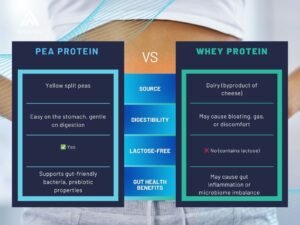
How Your Diet Shapes Your Bowel Movements (and Gut Health)
What you eat directly impacts your digestion, bowel movements, and overall gut health. Struggling with constipation, bloating, or irregularity? The key lies in your diet.

Home » Foods to Avoid for Better Gut Health
In the vast symphony of our bodies, the gut plays a pivotal role as a conductor of health. Far beyond a mere digestive system, the gut hosts an intricate ecosystem known as the microbiome. This invisible world of bacteria, fungi, and other microorganisms wields unparalleled influence over our well-being. As we embark on a journey to decipher the nuances of gut health, it becomes evident that our dietary choices hold the baton, dictating the harmony or discord within.
The age-old adage “you are what you eat” takes on profound significance when delving into the realm of gut health. Every morsel that graces our plates has the potential to either nourish or disrupt the delicate balance within our digestive kingdom. It’s not just about counting calories or grams; it’s about cultivating an environment where the gut microbiome flourishes, paving the way for robust health.
Join us on a gastronomic exploration, as we uncover the foods that may be clandestinely undermining your gut’s vitality. From processed temptations to seemingly harmless indulgences, we’ll navigate the culinary landscape to reveal the villains that jeopardize gut harmony. Are you ready to embark on a journey toward a healthier, happier gut? Let’s unravel the tapestry of foods to avoid for better gut health and pave the way for a symphony of well-being.
As we delve deeper into the intricacies of gut health, it’s essential to understand the starring players in this physiological drama: the gut microbiota. Comprising trillions of microorganisms, including bacteria, viruses, and fungi, the gut microbiome forms a dynamic community that not only aids in digestion but significantly impacts overall health.
Picture this microbial symphony as a harmonious dance, each microbe contributing to the rhythm and melody. Gut bacteria, in particular, emerge as the lead dancers, orchestrating the digestion of foods, synthesizing essential vitamins, and fortifying the immune system. This intricate choreography, when executed flawlessly, results in optimal nutrient absorption and a resilient defense against harmful invaders.
Understanding the symbiotic relationship between the host and these microscopic performers is crucial. The health of our gut microbiome is not just a matter of digestion; it extends its influence into realms as diverse as mental well-being, immune function, and even weight management.
Much like a flourishing ecosystem, a diverse array of gut bacteria is vital for maintaining balance and resilience. Unfortunately, certain dietary choices can disrupt this delicate equilibrium. Processed foods laden with preservatives and additives, excessive sugar consumption, and an overreliance on certain types of fats can alter the composition of the gut microbiome, potentially leading to a cacophony of health issues.
As we proceed on our gastronomic journey, it’s crucial to keep this microbial ballet in mind. The foods we consume play a pivotal role in either nurturing the gut microbiome or disrupting its delicate performance. Stay tuned as we uncover the dietary foes that may be throwing this microbial masterpiece off balance, and learn how to reclaim the harmony within your gut.

A. Processed Foods: The Dissonant Notes
Explanation of additives and preservatives:
Processed foods, often convenient and tempting, can contain a myriad of additives and preservatives. These chemical components, while extending shelf life, may disrupt the natural balance of gut bacteria. The delicate harmony of the microbiome is easily disrupted when faced with these synthetic interferences, potentially leading to digestive discomfort and inflammation.
Impact on gut bacteria diversity:
The diversity of gut bacteria is akin to the variety of instruments in an orchestra. Processed foods, high in artificial additives, have been linked to a reduction in this microbial diversity. A symphony thrives on a broad range of instruments, and similarly, a rich assortment of gut bacteria is crucial for optimal health. We’ll explore how minimizing processed foods can be a key step in restoring the melodic balance within.
B. Sugar and Artificial Sweeteners: Sweet Poison or Sour Note?
Effects of excessive sugar intake on gut flora:
The sweet allure of sugary treats may bring temporary satisfaction, but the repercussions on gut health are far from pleasing. Excessive sugar consumption has been associated with an imbalance in gut bacteria, favoring the growth of potentially harmful microbes. We’ll uncover the sweet-sour relationship between sugar and gut flora and explore ways to satisfy your sweet tooth without compromising your gut’s well-being.
Potential harms of artificial sweeteners:
Artificial sweeteners, marketed as sugar alternatives, may seem like a guilt-free solution. However, emerging research suggests that these substitutes could have adverse effects on the gut microbiome. We’ll demystify the impact of artificial sweeteners, offering insights into making informed choices for a sweeter, gut-friendly life.
C. High-Fat and Fried Foods: Greasing the Wheels of Discomfort
Link between saturated fats and gut inflammation:
Saturated fats, prevalent in certain high-fat diets, have been implicated in gut inflammation. Just as the wrong notes can disrupt a melody, the excessive consumption of saturated fats can create an inflammatory environment in the gut. We’ll navigate the dietary landscape to discern which fats compose a harmonious tune for your digestive system.
Impact of fried foods on gut lining:
The sizzle of fried delicacies may entice the taste buds, but the toll on the gut lining is a less appetizing consequence. Fried foods can compromise the integrity of the gut lining, potentially allowing harmful substances to enter the bloodstream. Join us as we explore the impact of fried indulgences and discover alternatives that keep your gut lining resilient and robust.
D. Dairy Products: Lactose, Inflammation, and Gut Woes
Lactose intolerance and gut discomfort:
For many, dairy products can be a source of digestive discomfort due to lactose intolerance. We’ll unravel the intricacies of lactose intolerance and discuss how it can contribute to gut issues. Additionally, we’ll explore dairy’s potential role in inflammation and its impact on the delicate gut balance.
Potential inflammatory effects of dairy:
While dairy is a significant source of calcium and other nutrients, certain individuals may experience inflammatory responses to dairy consumption. We’ll delve into the complex relationship between dairy and gut inflammation, offering insights into alternative sources of essential nutrients for those seeking a gut-friendly diet.
E. Gluten-containing Grains: Navigating the Gluten Web
Explanation of gluten and its impact on some individuals:
Gluten, a protein found in wheat and other grains, can be a culprit for individuals with gluten sensitivity or celiac disease. We’ll demystify gluten, exploring how it can trigger adverse reactions in susceptible individuals and contribute to gut issues.
Association between gluten and gut issues:
Beyond gluten sensitivity, there’s ongoing research exploring the broader association between gluten and gut health. We’ll shed light on this relationship, guiding you through the considerations for those looking to embrace a gluten-conscious diet.
As we uncover the dietary adversaries that might be compromising your gut’s well-being, stay tuned for the next section where we delve into specific foods to avoid for individuals with conditions such as Irritable Bowel Syndrome (IBS) and Inflammatory Bowel Disease (IBD). It’s time to fine-tune your dietary choices for a harmonious gut symphony.

A. Irritable Bowel Syndrome (IBS): Navigating the Dietary Minefield
Trigger foods for individuals with IBS:
Irritable Bowel Syndrome (IBS) presents a unique set of challenges, and dietary triggers can exacerbate symptoms. We’ll outline common trigger foods for individuals with IBS, providing insights into managing symptoms through personalized dietary modifications.
Importance of personalized diet plans:
IBS is a highly individualized condition, and what works for one person may not be suitable for another. Understanding the significance of personalized diet plans is crucial for individuals with IBS. We’ll explore the role of trial and error, along with professional guidance, in crafting a diet that promotes gut comfort and minimizes IBS-related distress.
B. Inflammatory Bowel Disease (IBD): Dietary Strategies for Management
Foods that may exacerbate inflammation:
Inflammatory Bowel Disease (IBD), including conditions like Crohn’s disease and ulcerative colitis, demands careful consideration of dietary choices. We’ll delve into foods that may exacerbate inflammation in individuals with IBD, shedding light on potential triggers that can contribute to flare-ups.
Considerations for managing IBD through diet:
While diet alone may not be a cure for IBD, it can play a significant role in symptom management. We’ll explore dietary considerations, such as the importance of nutrient-dense foods, hydration, and potential modifications that may help individuals with IBD maintain a better quality of life.
Navigating the dietary landscape becomes even more critical when addressing specific gut conditions. As we tailor our approach to individual needs, the journey to better gut health requires a nuanced understanding of the unique challenges posed by conditions like IBS and IBD. In the upcoming sections, we’ll shift our focus to gut-friendly alternatives and proactive tips for improving gut health through diet. Stay tuned for a symphony of insights that will empower you to make informed and mindful choices for your digestive well-being.
A. Whole Foods and Fibrous Choices: Nourishing the Gut Ecosystem
Benefits of a fiber-rich diet:
Whole foods, rich in fiber, serve as the backbone of a gut-friendly diet. We’ll explore the multifaceted benefits of incorporating ample fiber, from promoting regular bowel movements to fostering a diverse and resilient gut microbiome. Discover how embracing whole, unprocessed foods can be a transformative step towards nurturing your gut.
Examples of whole foods to support gut health:
Dive into a delectable array of whole foods that not only tantalize the taste buds but also provide essential nutrients for optimal gut function. From vibrant fruits and vegetables to wholesome grains and legumes, we’ll showcase a palette of options to inspire your journey towards a gut-friendly lifestyle.
B. Fermented Foods: Probiotic Powerhouses for Gut Bliss
Introduction to probiotics:
Probiotics, the superheroes of the gut world, play a crucial role in maintaining a balanced microbiome. We’ll unravel the mysteries of these beneficial microorganisms, exploring how they contribute to gut health and overall well-being.
List of fermented foods for a healthy gut:
Embark on a culinary adventure with a curated list of fermented delights. From tangy kimchi to probiotic-rich yogurt, we’ll guide you through a spectrum of fermented foods that can elevate your gut health. Learn how these probiotic powerhouses can become a delectable addition to your daily diet.
C. Prebiotic-Rich Foods: Cultivating a Garden for Gut Bacteria
Explanation of prebiotics and their role:
Prebiotics serve as the nourishment for the beneficial bacteria in your gut, creating an environment conducive to their flourishing. We’ll demystify the concept of prebiotics and shed light on their pivotal role in supporting a thriving gut ecosystem.
Examples of prebiotic-rich foods:
Delve into the world of prebiotic-rich foods, from fiber-packed vegetables to certain fruits and whole grains. Discover how these foods can act as the fertile soil for your gut bacteria, promoting a balanced and diverse microbiome.
As we embrace gut-friendly alternatives, these nourishing choices not only satiate your palate but also cultivate an environment where your gut microbiome can thrive. In the subsequent sections, we’ll explore practical tips for improving gut health through mindful eating practices, hydration, and the significance of a balanced and varied diet. The journey toward a harmonious gut symphony continues, and you’re poised to become the conductor of your digestive well-being. Stay tuned for more insights on cultivating a gut-friendly lifestyle.

A. Importance of a Balanced and Varied Diet: Orchestrating Nutritional Harmony
Understanding the role of balance:
A balanced diet forms the cornerstone of gut health. We’ll explore the importance of incorporating a variety of nutrient-dense foods to ensure your body receives a spectrum of essential vitamins, minerals, and other compounds crucial for overall well-being. Learn how a diverse diet can contribute to a resilient and thriving gut microbiome.
Navigating food groups for optimal gut function:
Delve into the different food groups, from lean proteins and colorful vegetables to whole grains and healthy fats. We’ll provide insights into the unique contributions each food group makes to your digestive health, empowering you to make informed choices that resonate with your gut’s needs.
B. Hydration and its Impact on Gut Function: Quenching the Gut’s Thirst for Wellness
The role of hydration in digestion:
Adequate hydration is a vital but often overlooked aspect of gut health. We’ll uncover the intricate connection between staying well-hydrated and supporting optimal digestion. From aiding nutrient absorption to maintaining the mucosal lining of the intestines, discover how water becomes the unsung hero of gut wellness.
Hydrating foods for a dual benefit:
Explore not only the importance of drinking water but also the hydrating potential of certain foods. From juicy fruits to hydrating vegetables, we’ll showcase a palette of choices that contribute both water content and essential nutrients, creating a holistic approach to gut health.
C. Mindful Eating Practices for Better Digestion: Savoring Every Bite
The art of mindful eating:
Mindful eating goes beyond just choosing the right foods; it involves being present and fully engaged during meals. We’ll delve into the concept of mindful eating, exploring how slowing down, savoring each bite, and paying attention to hunger and fullness cues can positively impact digestion and overall gut health.
Creating a conducive eating environment:
Your surroundings and approach to meals matter. We’ll provide practical tips for fostering a conducive eating environment, from minimizing distractions to incorporating gratitude into your meals. Discover how these mindful practices can transform your dining experience and, in turn, benefit your gut.
As we conclude this section, remember that achieving optimal gut health is not just about eliminating certain foods; it’s about embracing a holistic and mindful approach to nourishment. By incorporating these tips into your lifestyle, you’ll be on the path to cultivating a gut-friendly symphony that resonates with vitality and well-being. In the final segment, we’ll recap the foods to avoid for better gut health and leave you with a call to action for a healthier, happier digestive journey. Stay tuned for the grand finale!
A. Recap of Foods to Avoid for Better Gut Health
Processed Foods:
In our gastronomic journey, we identified processed foods as potential disruptors of gut health due to their additives and preservatives. Steering clear of these culinary culprits can pave the way for a more harmonious microbiome.
Sugar and Artificial Sweeteners:
Excessive sugar intake and the use of artificial sweeteners were unveiled as contributors to gut imbalance. Opting for natural sweeteners and mindful sugar consumption can be a sweet step towards nurturing your gut.
High-Fat and Fried Foods:
Saturated fats and the allure of fried delicacies were explored as potential instigators of gut inflammation and compromised gut lining. Choosing healthier fats and cooking methods can be key to orchestrating a gut-friendly diet.
Dairy Products:
For those with lactose intolerance or sensitivity to dairy, we discussed the potential gut discomfort and inflammatory effects. Exploring dairy alternatives and being attuned to your body’s response can be pivotal in supporting gut health.
Gluten-containing Grains:
The intricate relationship between gluten and gut issues, particularly for those with gluten sensitivity, was unraveled. A mindful approach to gluten consumption and exploring gluten-free alternatives may be beneficial for certain individuals.
B. Encouragement for Adopting a Gut-Friendly Diet
Embracing Gut-Friendly Alternatives:
Our exploration of whole foods, fermented delights, and prebiotic-rich options highlighted the positive impact these choices can have on the gut microbiome. By incorporating these alternatives, you’re not just avoiding harmful foods but actively nurturing your gut ecosystem.
Navigating Specific Gut Conditions:
For individuals dealing with IBS or IBD, understanding trigger foods and adopting personalized diet plans can be transformative. Empower yourself with knowledge to navigate your unique gut landscape.
C. Call to Action: Your Gut, Your Symphony
In conclusion, the symphony of your gut health is a composition uniquely yours. As you bid farewell to foods that may disrupt this harmony, remember that adopting a gut-friendly lifestyle is a continual journey. Make informed choices, embrace whole and nourishing foods, stay hydrated, and practice mindful eating. Your gut is a dynamic ecosystem, and by conducting a mindful dietary orchestra, you have the power to foster lasting harmony within.
Take charge of your gut health, savor the journey of discovering what resonates with your digestive symphony, and revel in the well-being that follows. The stage is set, the instruments are in your hands – orchestrate a gut-friendly melody that echoes with vitality and happiness. Cheers to a healthier, happier you!

What you eat directly impacts your digestion, bowel movements, and overall gut health. Struggling with constipation, bloating, or irregularity? The key lies in your diet.

You’ve been pooping wrong your entire life—and it’s wrecking your gut. Dr. Gina Sam’s poop method reveals the shockingly simple, doctor-backed fix that makes straining

Struggling with bloating after protein shakes? Your choice of protein could be affecting your gut health. Pea protein is gentle and gut-friendly, while whey protein

Table of Contents <svg aria-hidden=”true” viewBox=”0 0 448 512″ xmlns=”http://www.w3.org/2000/svg”><path d=”M207.029 381.476L12.686 187.132c-9.373-9.373-9.373-24.569 0-33.941l22.667-22.667c9.357-9.357 24.522-9.375 33.901-.04L224 284.505l154.745-154.021c9.379-9.335 24.544-9.317 33.901.04l22.667 22.667c9.373 9.373 9.373 24.569 0 33.941L240.971

Happy Poops.
What about your friends?